New EU migration and asylum pact
Press release - ec.europa.eu/commission/pre…
Legal texts (main communication, five legislative proposals, soft law, roadmap, staff working document) - https://t.co/4Ai5rcWD6n
Press release - ec.europa.eu/commission/pre…
Legal texts (main communication, five legislative proposals, soft law, roadmap, staff working document) - https://t.co/4Ai5rcWD6n
Main points in today's EU migration and asylum package.
Not everything is new - the Commission is reverting back to its prior proposals on qualification of refugees, reception of asylum seekers, resettlement of refugees, the EU asylum agency, and return of irregular migrants
Not everything is new - the Commission is reverting back to its prior proposals on qualification of refugees, reception of asylum seekers, resettlement of refugees, the EU asylum agency, and return of irregular migrants
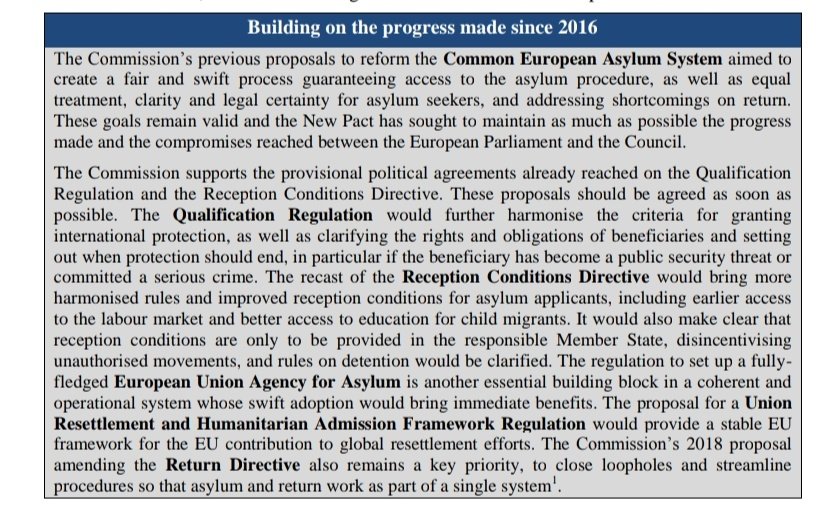
Key new/amended proposals - on fast tracked screening of asylum seekers at the border. Not automatic rejection but limited procedural rights etc. Likely to raise human rights concerns. 
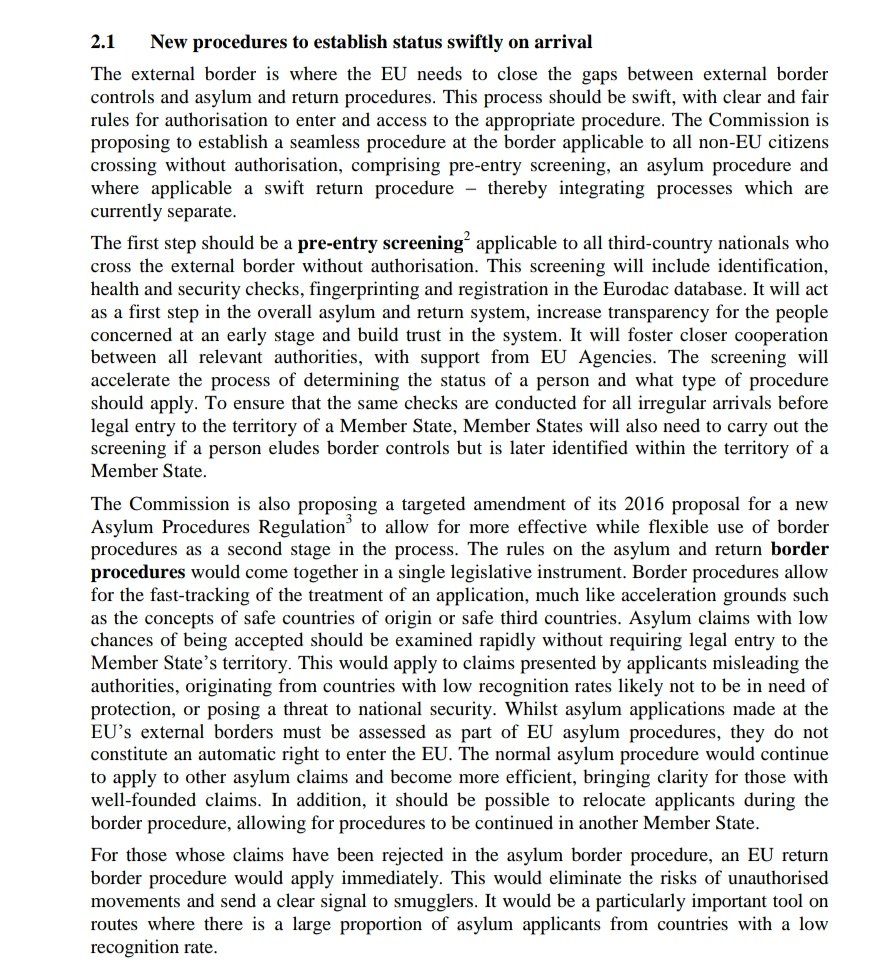
The 2016 proposal to replace the Dublin Regulation is dead; long live the 2020 proposal to replace the Dublin Regulation. The bits on relocation of asylum seekers were impossible to agree last time. The new "return sponsorships" might attract more support. 
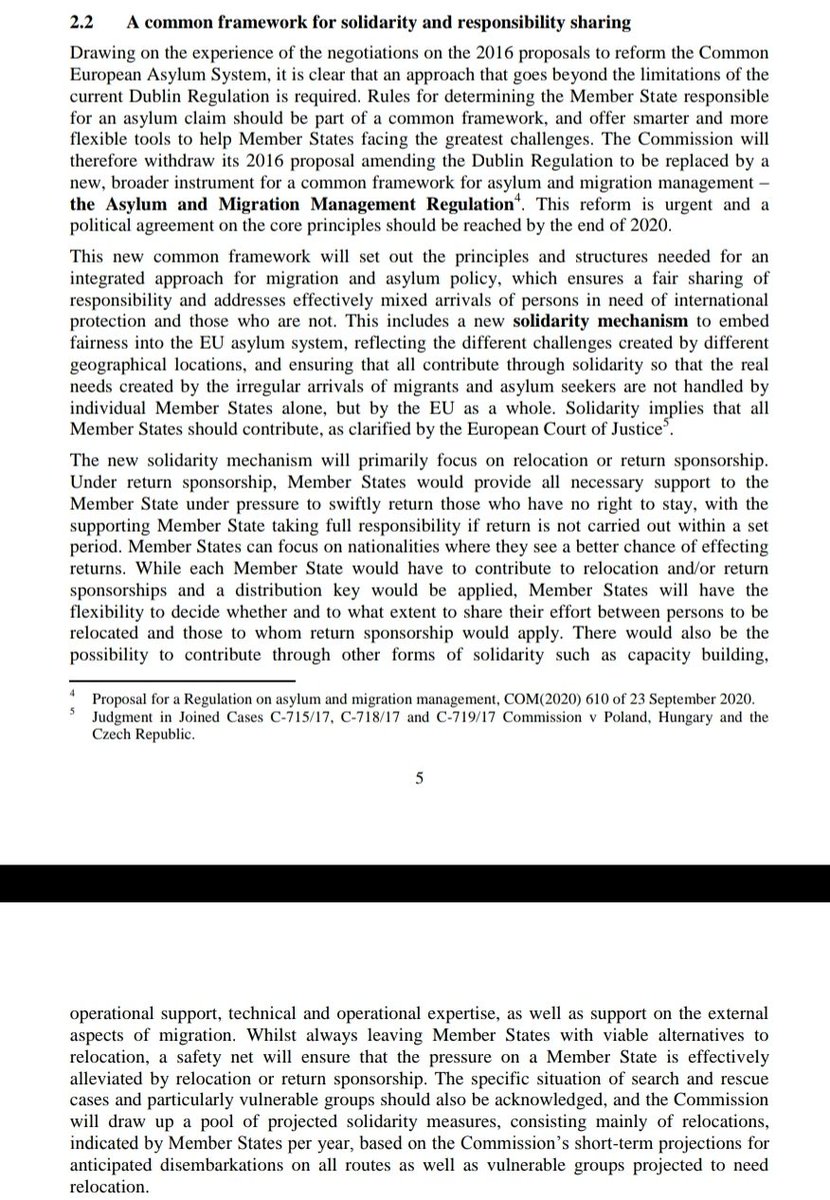
Some proposed changes to the core Dublin rules on responsibility for asylum seekers. Family unity rules still apply. New rule if the asylum seeker has a diploma from a Member State! Longer responsibility if asylum seeker crosses border irregularly; explicitly applies to rescue. 

A significant proposal to integrate refugees and people with subsidiary protection: it would be possible to get EU long term resident status after three years, not five. Includes possibility of moving to another Member State (although not full free movement of people). 

New emphasis on expelling non-EU citizens without a right to stay - not just the legislative proposal, but a head honcho for expulsions 
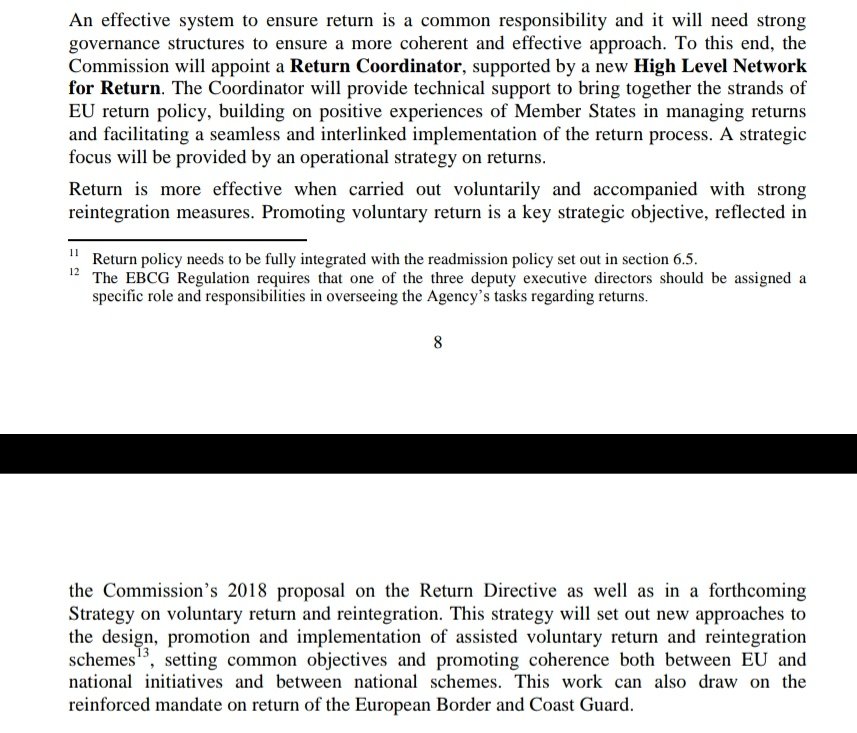
The Commission keeps saying it thinks voluntary returns of irregular migrants (avoiding detention and use of force) are important.
Nice, but its 2018 proposal *reduces* voluntary returns, as discussed here: eulawanalysis.blogspot.com/2020/08/the-pr…
Nice, but its 2018 proposal *reduces* voluntary returns, as discussed here: eulawanalysis.blogspot.com/2020/08/the-pr…
It's a day with a 'y' in it, so the Commission wants to collect, store, process, yada yada more personal data of non-EU citizens 
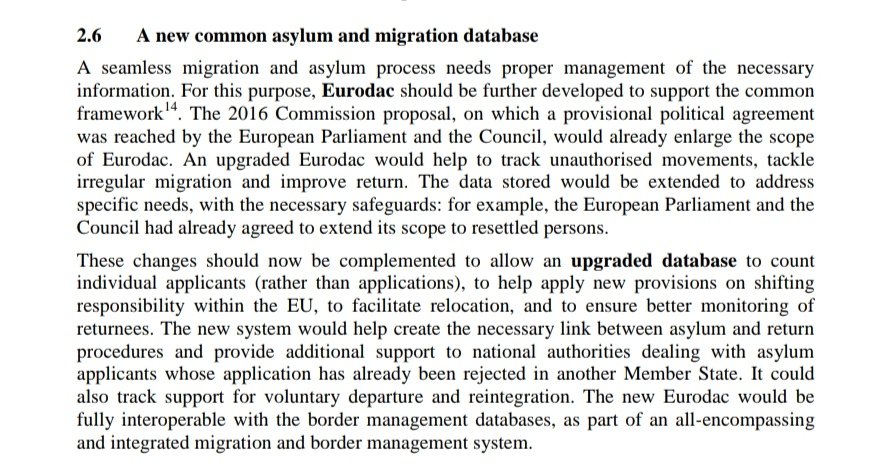
A separate proposal to deal with asylum crises. Impossible to agree on before (leaving aside the emergency short term relocation decisions of 2015, which were barely implemented anyway). Maybe possible to agree if it will never be used, like the 2001 EU temporary protection law. 
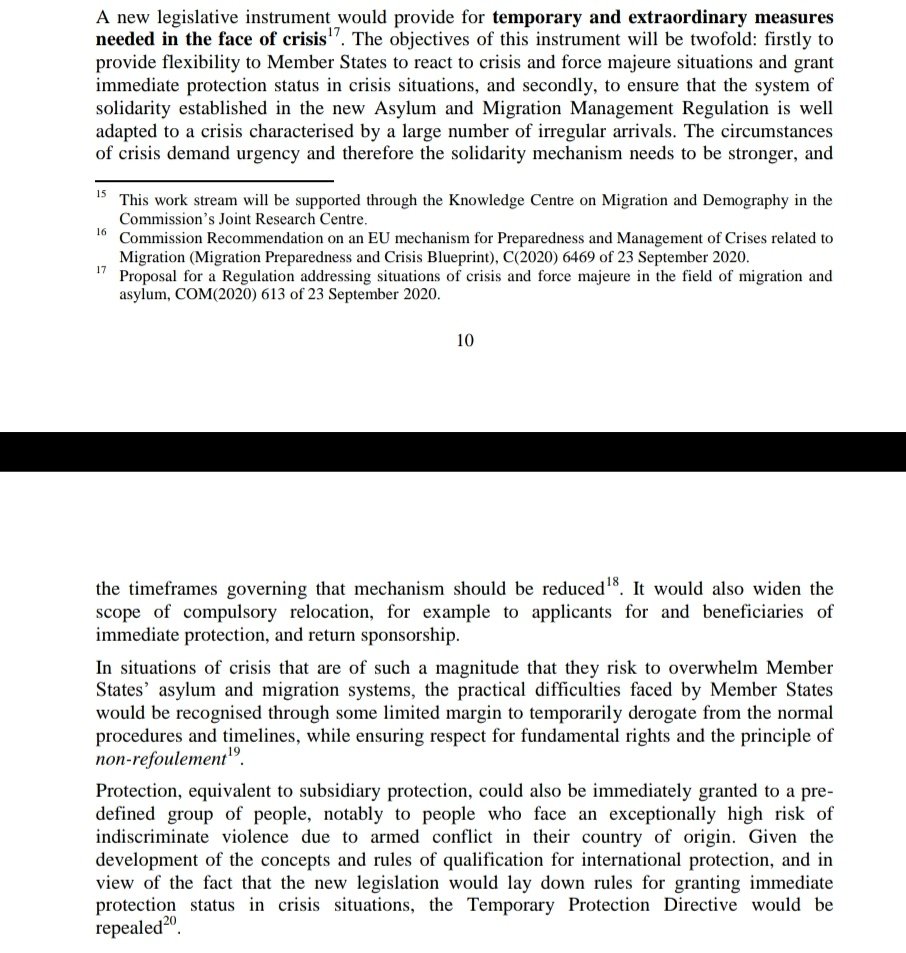
Legal migration too: the Commission wants to relaunch its proposal to revise the Blue Card scheme for higher paid non-EU migration, discussed here: eulawanalysis.blogspot.com/2016/07/the-ne…
Relevant to Brits moving to the EU after the Brexit transition period.
Relevant to Brits moving to the EU after the Brexit transition period.
Also plans (coming next year) to propose revision of the laws on long term residents (especially re movement between Member States)and non-EU workers in general. Also relevant to Brits soon; the long term residents law is also relevant to Brits covered by the withdrawal agreement 
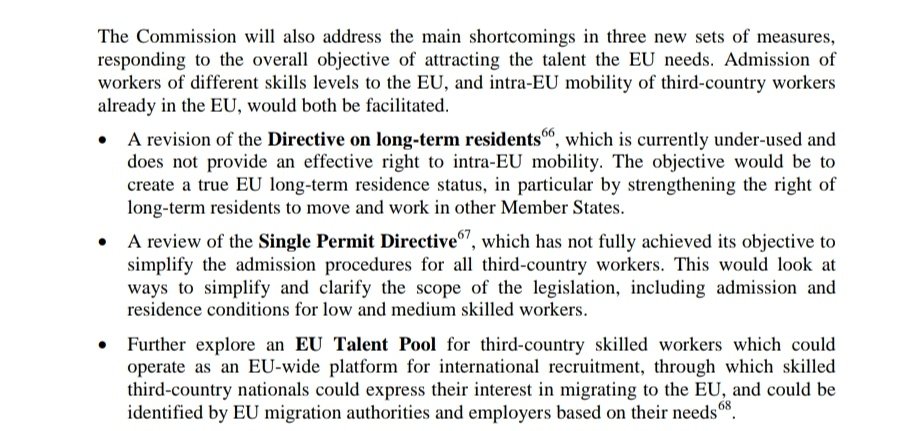
Finally, from the Commission guidelines on smuggling of migrants: search and rescue at sea cannot be criminalised, in accordance with international law of the sea 
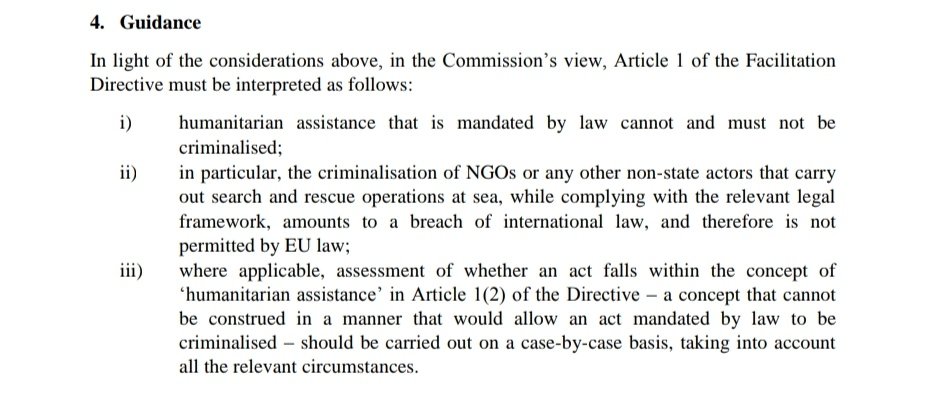
• • •
Missing some Tweet in this thread? You can try to
force a refresh














